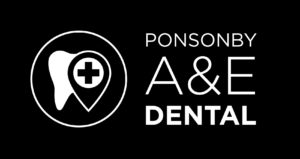
Dental Sedation (Oral & IV)
If you are anxious about visiting the dentist or avoid it altogether – because you worry about experiencing pain and discomfort, Dental sedation may be for you.
Sedation is designed to help you relax during your treatment. We offer Intravenous and Oral sedation to our patients. Intravenous sedation is a technique whereby an anti-anxiety drug is injected into a patient’s bloodstream, either in the back of your hand or in your arm.
In oral sedation, patients are given an anti-anxiety drug orally. While sedated, you may remain conscious during treatment and may be able to understand and respond to verbal commands.
However, you will not remember much about your treatment because the sedation induces a state of deep relaxation. Our dentists and nurses are specially trained to deliver these types of sedation and will make sure you are safe and comfortable at all times during your visit.
Need to Know
Appointments
- Oral: One appointment.
- IV: Two appointments (pre appointment consult).
Duration
- Oral: Prescription one hour before appointment.
Recovery Time
- 24 hours.
Benefits
- Reduce anxiety, muscle relaxant (lips, tongue and jaw).
Symptoms/Conditions
- Very anxious.
Before Appointment
- Sedation will make your dental treatment an enjoyable experience. It is suitable for most people, but if you are not in good health or taking medication, please tell us so the sedation can be modified to suit your needs.
- You will have to update your health questionnaire.
- You must have an escort To and From our office, someone who can spend the rest of the day with you. If you arrive at our office unescorted, we will not be able to perform the sedation.
- Do not eat or drink anything for at least six hours preceding your appointment.
- Wear loose-fitting clothing with sleeves that can be drawn up past the elbow and wear low heeled shoes. Remove contact lenses.
- Visit the restroom before your appointment.
- You must not consume alcohol 24 hours before or after sedation.
After Appointment
- Not to drive or operate machinery.
- Not to undertake responsibilities, actions, or decisions (including watching children and cooking).
- ABSOLUTELY NO ALCOHOL 24 hours before or after treatment.
- Not to take any other drugs without prior approval.
Related Doctors
Fees
- Oral- $50
- IV- $400
Frequently Asked Questions
A prescription anti-anxiety drug is used for both oral and IV sedation.


